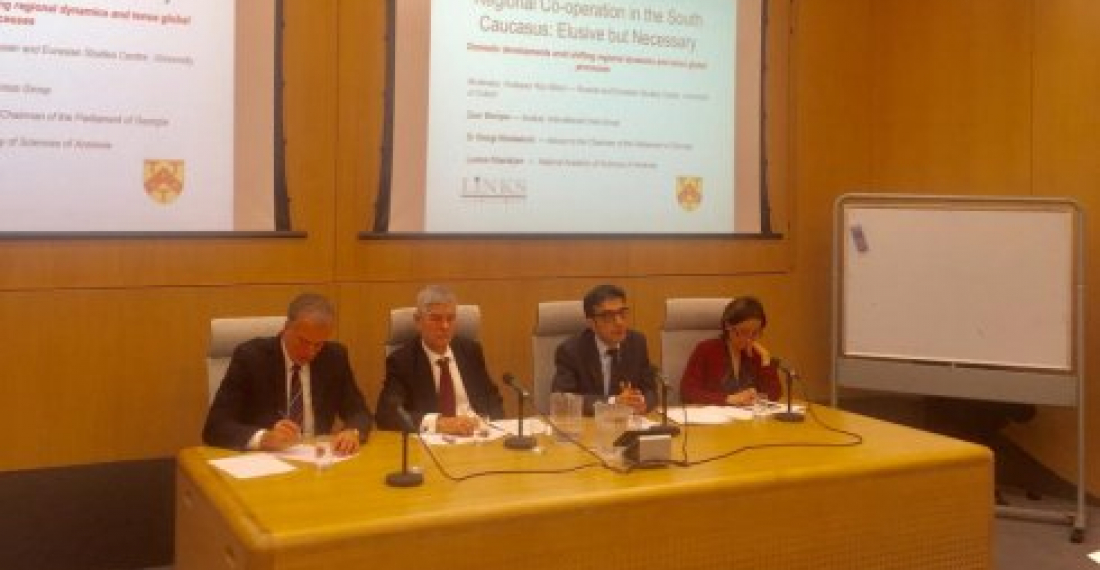It has been an eventful year so far in the three South Caucasus countries with many developments in the internal politics of the three countries in the region. Giorgi Khelashvili, Zaur Shiriyev and Lusine Kharatyan shared their insights on the current domestic politics in Georgia, Azerbaijan and Armenia during a panel discussion at a conference held at Oxford University on Monday 12 November 2018. The conference was organised by LINKS and RESC in the framework of the European Union's EPNK programme with the theme "Regional Co-operation in the South Caucasus: elusive but necessary". The theme of the panel discussion, chaired by Oxford University Professor Roy Allison was "Domestic developments amid shifting regional dynamics and tense global processes".
You can watch it in full here on commonspace.eu youtube channel
source: commonspace.eu
photo: The panel discussion on domestic politics at the 3rd Conference on contemporary South Caucasus issues from left to right, Dr Giorgi Khelashvili, Professor Roy Allison, Zaur Shiriyev and Lusine Kharatayan.







